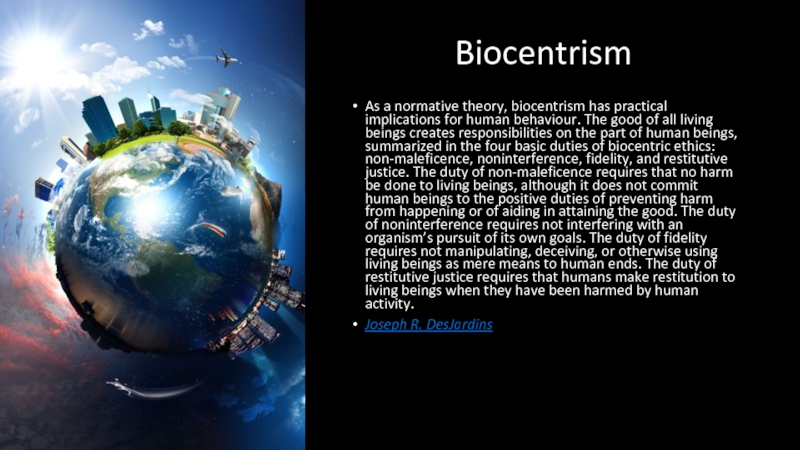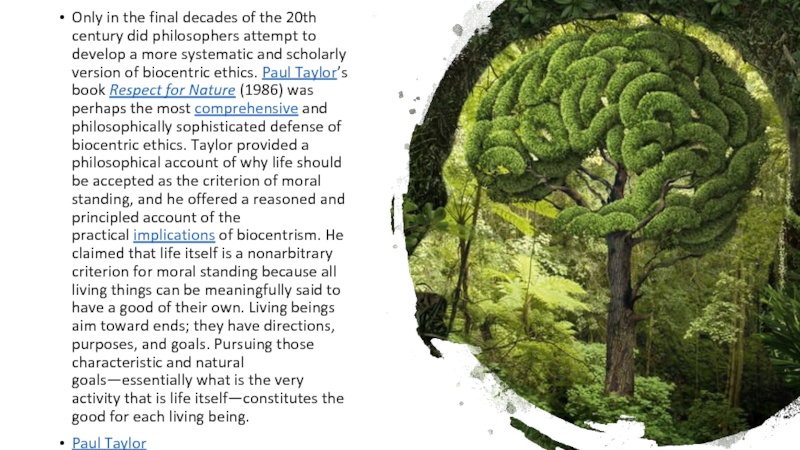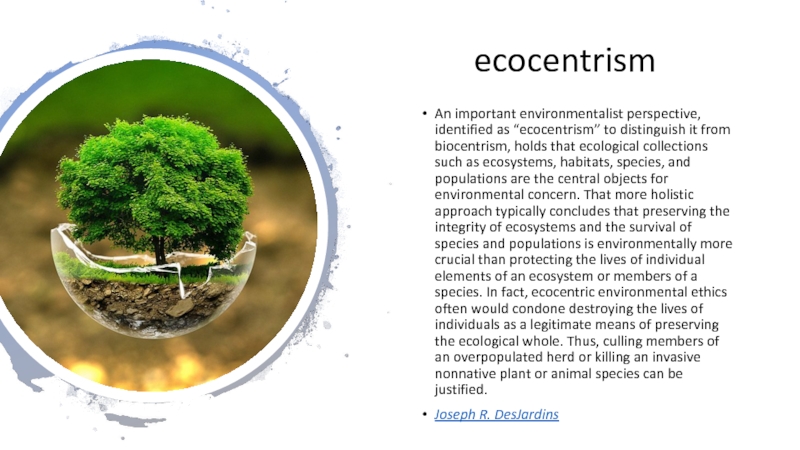behaviour. The good of all living beings creates responsibilities on
the part of human beings, summarized in the four basic duties of biocentric ethics: non-maleficence, noninterference, fidelity, and restitutive justice. The duty of non-maleficence requires that no harm be done to living beings, although it does not commit human beings to the positive duties of preventing harm from happening or of aiding in attaining the good. The duty of noninterference requires not interfering with an organism’s pursuit of its own goals. The duty of fidelity requires not manipulating, deceiving, or otherwise using living beings as mere means to human ends. The duty of restitutive justice requires that humans make restitution to living beings when they have been harmed by human activity.Joseph R. DesJardins























